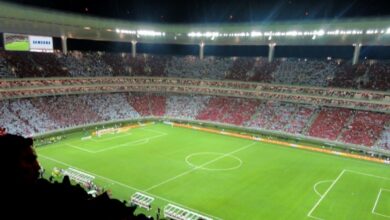What can I do if I can’t breastfeed my baby?
If you cannot breastfeed your baby, we tell you some of the options you have

Not being able to feed your baby with your milk can be a depressing and stressful experience and, although you can allow yourself to feel sadness, anger or any other emotion, you should try not to be too hard on yourself and inform about the options you have in case you have this type of inconvenience.
Leer en español: ¿Qué puedo hacer si no puedo amamantar a mi bebé?
Which can be the reasons?
1. Hypogalactia: According to the daily Salud MAPFRE, this consists of the scarce milk production that hinders the feeding of the baby. Its causes are varied and include:
- Previous surgery of the breast
- Agenesis of breast tissue, where it does not mature during pregnancy
- Undiagnosed hypothyroidism
- Severe emotional stress that decreases prolactin, the hormone that produces milk
- Sheehan syndrome: lack of blood supply during delivery that prevents the production of prolactin and oxytocin.
- Prolactin deficiency
You may also be interested: Is your baby coming? 5 signs you are in labor
2. Medical contraindication for breastfeeding: There are few cases in which it is contraindicated to breastfeed
- Metabolic diseases.
- Maternal problems: oncological chemotherapy, drug addiction and maternal alcoholism, radioactive treatments or procedures, severe maternal malnutrition, maternal severe psychiatric illness, active TB, breast cancer.
What are my options?
According to the newspaper Es Más, thousands of mothers in the world donate breast milk to the banks in their city or country. These banks, which are normally within hospitals, process, administer, review and dispatch the milk under formula.
You may also be interested: Do you feel pain when you breastfeed? You could suffer from mastitis
This milk is labeled according to the date of the donation and the age that the baby of the donor is, so the banks will grant the one that has the nutritional specifications required by your baby.
These banks were created by an agreement between the United Nations Children's Fund (UNICEF) and the World Health Organization (WHO), which declared that there is nothing better for a baby than breast milk.
Once the milk reaches the banks, it is pasteurized and labeled according to the date of donation and the age that the donor's baby has. In this way, banks provide milk with the nutritional specifications that your baby requires according to their age.
It is important to keep in mind that, in order for you to use a milk bank, you must have a prescription from the neonatologist or pediatrician who treats your baby. If you do not get this formula, you can always go to a nurse or rental mom, whom you can ask to extract, freeze and deliver. Always remember to consult your doctor before making any decision.
LatinAmerican Post | Luisa Báez
Translated from “¿Qué puedo hacer si no puedo amamantar a mi bebé?”
Listen this article





